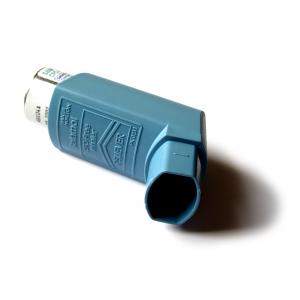Asthma is a medical condition which is currently in the media a lot, but what is it and why the recent news coverage?
What is Asthma?
As a medical training company we are often asked “what is asthma?” Strangely there are a number of answers! Most definitions focus on the air passages that allow us to breath, the airways. Commonly in asthma the person experiences a narrowing or restriction in air flow through these airways. As asthma varies from person to person, there can be a number of causes of this: bands of tissue around the outside of the airways can constrict, tightening the airway; the inner lining of the airway can become inflamed, thereby narrowing the airway; mucus can build up inside the airway. For many sufferers it is actually a combination of this that causes the symptoms they experience.
Common symptoms of Asthma
Different people have different symptoms [how they feel] when affected by asthma, but common symptoms are: wheezing, coughing – often at nighttime, tightness of the chest.
What causes Asthma?
This also varies a lot from person to person, as there are many different “triggers” [what causes the symptoms] which can cause the person to have an “attack”. Common triggers are: pollen [which is why the story is currently in the news]; smoke; exercise; mould/fungi; stress; pollution; dust mites but this is not a definitive list. Testing is available to find out what might be an individual’s triggers as if the person can avoid these it should reduce the risk of an attack.
What to do is someone is having an Asthma attack.
Any suspicion that someone is having an asthma attack should be taken seriously, sadly 3 people per day die in the UK from asthma attacks and in around 2/3rd of those cases the person could have been saved with appropriate and prompt care.
Try and keep the person calm.
Get them to sit up, not lay down.
If they have a “reliever” inhaler, normally coloured blue, then they should take one puff as per the instructions.
If this doesn’t make them feel better you can repeat the use of the inhaler every 30-60 seconds. It is sometimes necessary to use the inhaler a few times, but if using the inhaler isn’t helping, or the person starts to feel worse call 999 for an ambulance.
If you have recently been diagnosed with Asthma, know someone who has, or are just seeking further information we would urge you to visit the website of Asthma UK. Here you can find a wide range of materials, guidelines and topical information such as asthma during Ramadan. Their website is linked to the name above or can be found at this address: http://www.asthma.org.uk/Default.aspx

